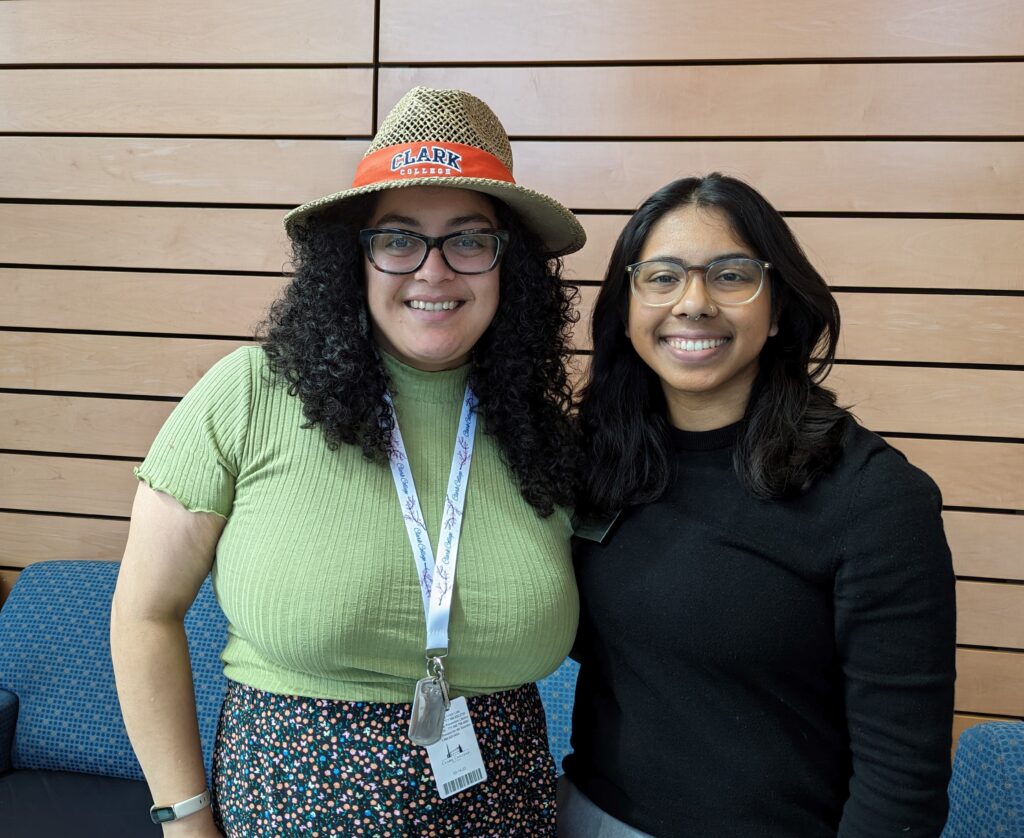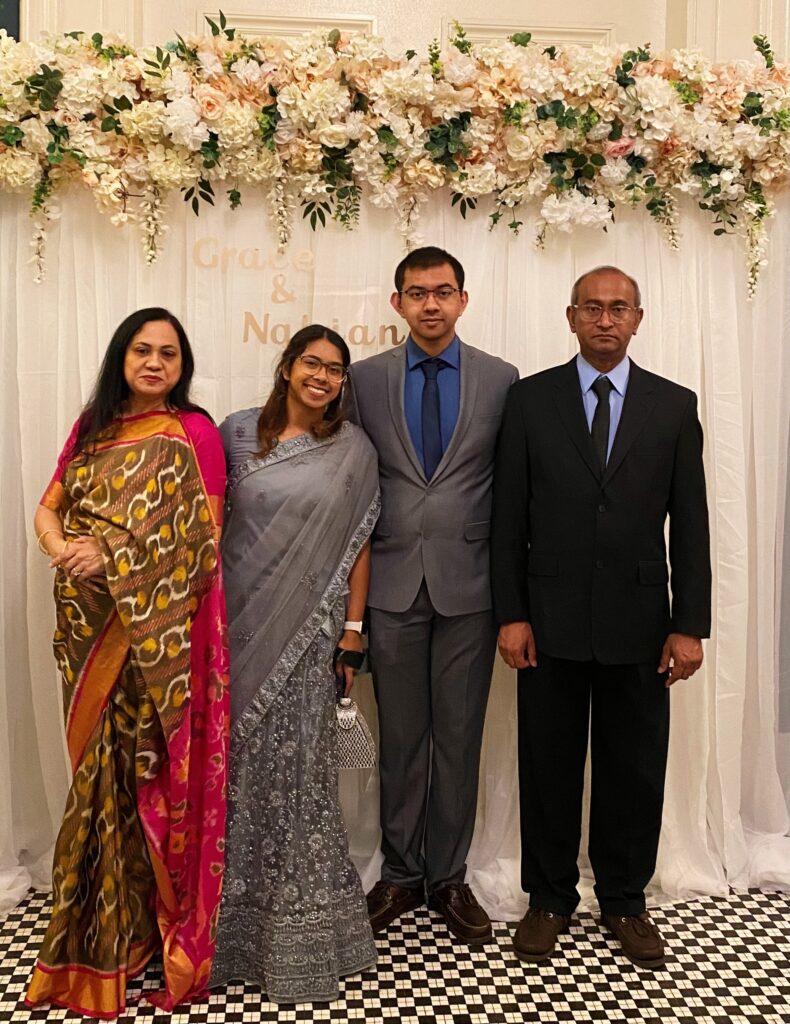Nushi Alam recounts impact of microaggressions

Clark College pre-nursing student Nushi Alam shared her story with Clark students, faculty, and staff at the Spring Student of Color Luncheon on April 16. The free event is presented each term by Clark’s Office of Diversity, Equity and Inclusion and Multicultural Student Affairs. The purpose of the student luncheons is to allow students and employees to hear inspiring stories, connect with faculty, and meet new friends, consider different career paths, and identify community resources and potential mentors.
Alam is involved in Clark’s student government and is the Associated Students of Clark College student relations and promotions coordinator.
Before she was born, Alam’s parents immigrated from Bangladesh in South Asia to Vancouver, Washington. She was born and raised in Clark County, where people of color are in the minority.

“There is a lack of a South Asian community here,” she said. “It is predominantly white.”
All through school she rarely had anyone in her classes who looked like her. She did not know anyone else in school whose parents were from Bangladesh. Throughout grade school, middle school, and high school, she knew maybe five other students who were Muslim. She was different.
As a girl, she learned Bangladeshi dancing. When her family attended mosque or Bangladeshi weddings, they dressed in traditional clothing.
“I used to be embarrassed wearing my traditional clothing in public after mosque,” she said.
While Alam’s classmates focused on getting a tan during the summer, her skin already was darker than theirs.
She said, “I grew up with Mom telling me, ‘Don’t go out in the sun too long. You’re going to get darker.’”
“But what’s wrong with dark?” Alam posed to the crowd. She added, “Regardless of how you look, regardless of beauty standards in America, you are beautiful.”
Experiencing microaggressions
Growing up in Vancouver, Alam has experienced prejudice, microaggressions, and rude comments from classmates and even from strangers. More times than she can count, she has been asked where she is from.
Her reply: “Here. I was born and raised in Vancouver.”
But often, the person has not accepted her answer and asked, “Where are you really from?”
She added, “Almost weekly, someone tries to tell me who I am.”
People often assume she is from India. Recently, she was at the beach with a friend when another girl told her, “Oh, you’re Indian!”
A coworker at a past job told her she was Pakistani “because Bangladesh was part of Pakistan like 100 years ago,” she said.
During the luncheon, Alam defined microaggressions as normally unintentional behaviors or comments that convey negative or discriminatory attitudes towards marginalized groups.
She gave some examples of microaggressions she and other people of color have experienced:
- “Where are you really from?”
- “I love how your hair feels!”
- “You’re so exotic.”
- Assumptions about how a group of people smell
- Assuming all South Asians are doctors, engineers, internet technology professionals, etc.
- Asking if you have a nickname because your real name is “too hard to pronounce.”
Alam said, “Nushi is my nickname. I love my nickname. It’s what my family has always called me.”
How stereotypes have affected her life: “The concept of intelligence. I took really hard classes, and people assumed I was smart. Yes, in my household, I am expected to do very well (in my classes), but don’t assume that all South Asians are smart.”
Assumptions about dating: “In South Asian cultures, dating is almost nonexistent. People assume I will date within my own race—and only date someone who looks like me.”
On showing her emotions in front of her parents: “Crying is not a thing. If you cry, you will be considered weak. You can’t show emotions or be upset.”
Alam’s creative outlets for coping: “I tend to go to my friends to vent. It is good to let those emotions out.”
Her advice on how to be an ally:
- “Stay educated. Be open-minded. If you are researching a culture or country that you know little about, look at several sources.”
- “If you have friends who are people of color, ask them questions, but do it respectfully.”
- “You can learn from media (books, movies, TV, YouTube, and more), but don’t rely wholly on media to learn about a culture.”
Alam spoke about the importance of representation, of being visible, being seen, and feeling appreciated and empowered. It has not been easy finding characters in media who look like her and have similar backgrounds and experiences. Then she discovered a Netflix series titled “Never Have I Ever” that features a South Asian young woman as a main character.
“I was excited to find a show about someone who looks like me,” she said.
Alam recommends these stories that feature South Asian characters:
- The Henna Wars a young adult novel by Adiba Jaigirdar
- Never Have I Ever Netflix series, four seasons
- Bridgerton season 2 on Netflix
- Mean Girls (2024) movie produced by Paramount Pictures
Learn more social equity definitions
Find more social equity definitions on the Clark College Equity Centered Strategic Plan here.












